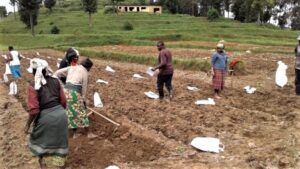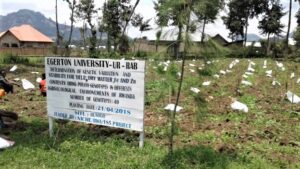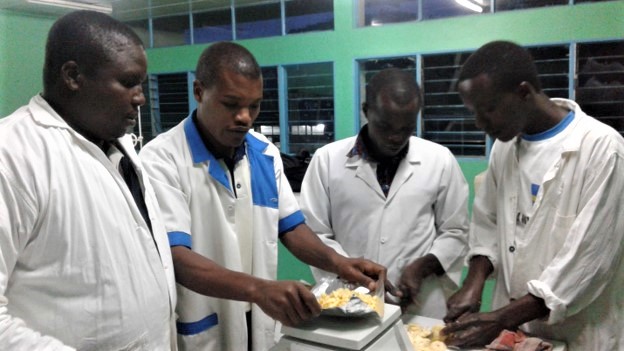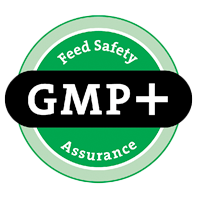Genetic improvement of potato Rwanda
 By Jean Pierre Niyonzima, PhD student at Egerton University, Plant breeding programme
By Jean Pierre Niyonzima, PhD student at Egerton University, Plant breeding programme
GENETIC IMPROVEMENT OF POTATO (SOLANUM TUBEROSUM L.) FOR DRY MATTER, IRON, ZINC CONTENTS AND YIELD IN RWANDA
Potato (Solanum tuberosum L.) is among the important food crops worldwide including Rwanda. Industrial and nutritive quality traits such as dry matter and micronutrients for the potato germplasm in Rwanda are low, variable and their inheritance is not known. An investigation was initiated intending to improve the yield, dry matter and mineral micronutrient contents in potato cultivars in Rwanda through conventional and molecular breeding approaches.

Trial establishment in Kitabi site

Harvesting a trial in Busogo site
GENOTYPES
Forty genotypes have been evaluated during short and long rain seasons of 2017 and 2018 in three locations (Busogo, Rwerere and Kitabi) for their genetic variation and stability for yield, dry matter (DM), iron (Fe) and zinc (Zn) contents in open fields using 4× 10 Alpha lattice design.
The genotypes showing high to medium content in DM, Fe and Zn contents have been selected and are being used in crossing diallel mating design to create hybrids with increased contents in DM, Fe, Zn, tuber yield, tuber yield contributing parameters and other quality parameters.

Crossing activity in the greenhouse
The molecular analysis for selected genotypes is being prepared and will be performed using simple sequence repeats (SSR) markers to determine the genetic relationship among selected genotypes to complement field information in selecting parents and hybrids to evaluate for the traits under study.

Potato samples preparation for dry matter, iron and zinc determination
NEXT STEPS
For the next steps, created F1 hybrid seedlings will be evaluated for their performance for different traits. The F1 hybrid clones and their parents will be grown in alpha lattice design in three sites in one season to determine combining ability including general combining ability (GCA), specific combining ability (SCA) effects and interaction effects of combining ability with the environment (GCA×E and SCA×E), heterosis and heritability of genotypes for yield, DM, Fe and Zn content traits. From the research findings, different genotypes will be recommended for improvement of potato germplasm in terms of DM, Fe, Zn, tuber yield and other quality traits for Rwanda.







